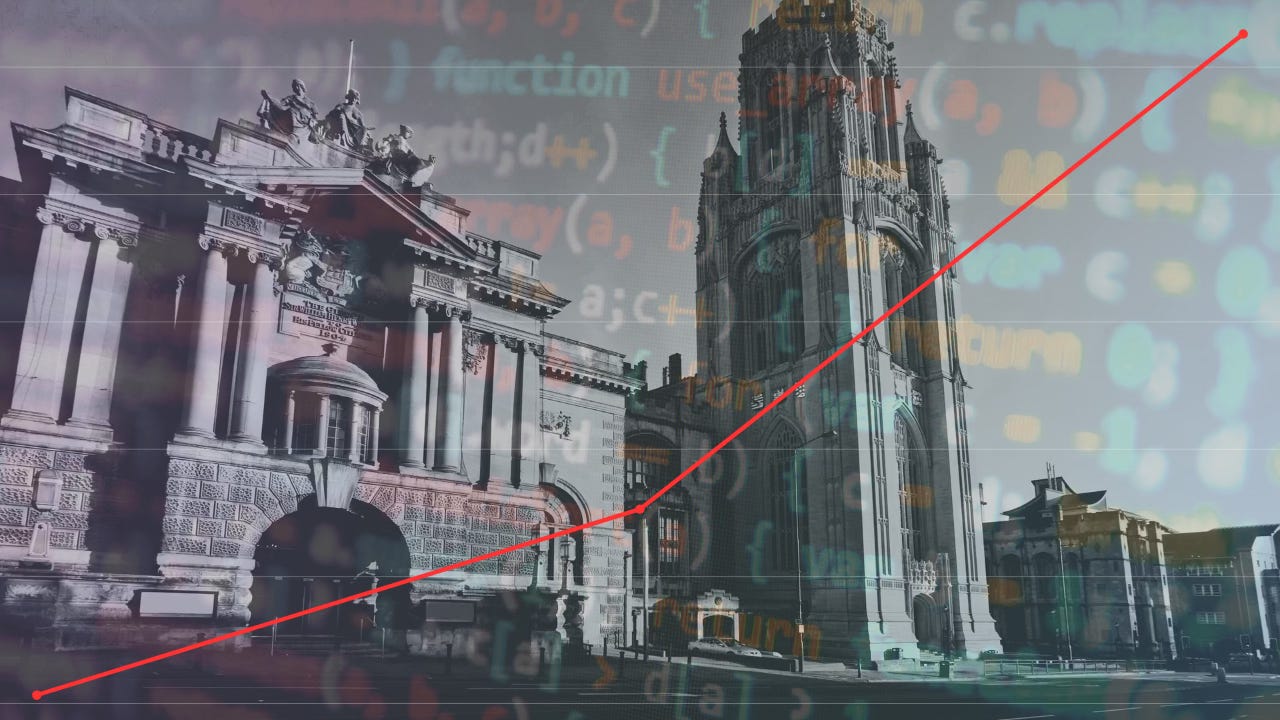EXCLUSIVE: University of Bristol sees 7,414% increase in AI penalties
The Student Eye can exclusively reveal that the University of Bristol penalised over 500 students last year for the use of AI in assessed work.
Welcome!
Hello and welcome to The Student Eye, a weekly publication for university students and those interested in higher education across the UK.
This week, we can exclusively reveal the astonishing figures related to AI use at the University of Bristol, where over 500 penalties were handed out last year alone. There has been an increase of over 7000% over the last two years, raising questions over how universities should approach a spiraling issue.
Read our analysis below!
University of Bristol issues over 500 penalties for AI use in just one year
By Amelia Gibbins
The Student Eye can reveal that the University of Bristol has issued 686 penalties for AI use in assessed work since 2021. Over three quarters of these penalties were issued in the most recent academic year.
Data obtained through freedom of information requests shows that total of 526 penalties were issued in the 2023/24 academic year, which marks a 244% increase compared to the year before, when 153 penalties were issued. In 2021/22, just 7 penalties in relation to AI use were issued.
The University of Bristol has seen a 7,414% increase in AI-related penalties over two years. Cases of potential academic misconduct are usually identified by markers, with outcomes being recorded by individual schools. In cases of potential AI use, there is then a conversation with the student to understand how they completed the work and to explain any concerns.
Where there is insufficient evidence, the case is dismissed. If, however, the evidence suggests malpractice, students can either be referred for training and feedback, or refer the case to a midconduct panel, depending on the seriousness.
The University considers the “unauthorised use of artificial intelligence to complete a piece of work in a manner that circumvents the design of an assessment or the intended learning outcomes the student should demonstrate through that assessment as a form of cheating,” according to its assessment regulations.
In cases of academic misconduct, the burden of proof used is the balance of probabilities, meaning that a student will be found guilty of academic misconduct if, on the evidence available, it is more likely than not that the offence was committed. The University’s policy on academic misconduct is currently under review, with a view to more clearly establishing this burden of proof.
The University of Bristol, in response to the freedom of information request, highlighted that detection software is “not used as a screening tool and provides additional evidence to aid a discussion with the student as part of a possible plagiarism investigation.” Cases are never brought to panel based only on results from the detection software due to the “limitations and bias” of such tools.
Such widespread use of chat bots and other AI tools is a relatively new phenomenon, and this data provides a snapshot of that impact on just one university. In reality, the University of Bristol has approximately 30,000 students, making its 526 penalties in one year appear rather conservative.
A HEPI report in February 2025 found that 92% of students had used AI in some form, with 88% having used generative AI for assessments. These figures have surged since 2024, when just 66% admitted to using AI in some form and 53% using generative AI for assessments. The question is: up to what percentage will these figures spiral, and how can universities approach the issue? Furthermore, will there come a point where AI in academic work is impossible to detect?
Visuals creating using Canva
Around the country
Each week, we bring you a selection of our favourite stories from student publications around the UK.
King’s College Cambridge agrees to divest from arms companies
Varsity reports that King’s College Cambridge has become one of the first Oxbridge colleges to commit to divesting from arms companies. The announcement follows nearly a year of pressure from student activist groups, such as King’s College for Palestine and the Cambridge for Palestine Coalition. As of March 2023, the college indirectly invested £2.2m in arms companies, including Lockheed Martin, Korea Aerospace, and BAE Systems.
Over 10% of Oxford offers come from just 14 schools
Amelia’s investigation for Cherwell reveals that over one in ten Oxford offers come from just 14 schools. The 14 schools are comprised of eight private schools, and all but two are in the south of England. The school situated farthest north is just south of Birmingham, and the only other non-southern school is in Singapore. The investigation includes insight from David Blunkett, Blair’s inaugural Secretary of State for Education and Employment, who described Oxford’s access efforts as “smoke and mirrors”.
University of Edinburgh staff vote for strike action
The Student report on strike action at the University of Edinburgh over proposed cuts of £140m over the next 18 months. With a turnout of nearly two-thirds, 84 per cent of University and College Union (UCU) Scotland members backed strike action.







